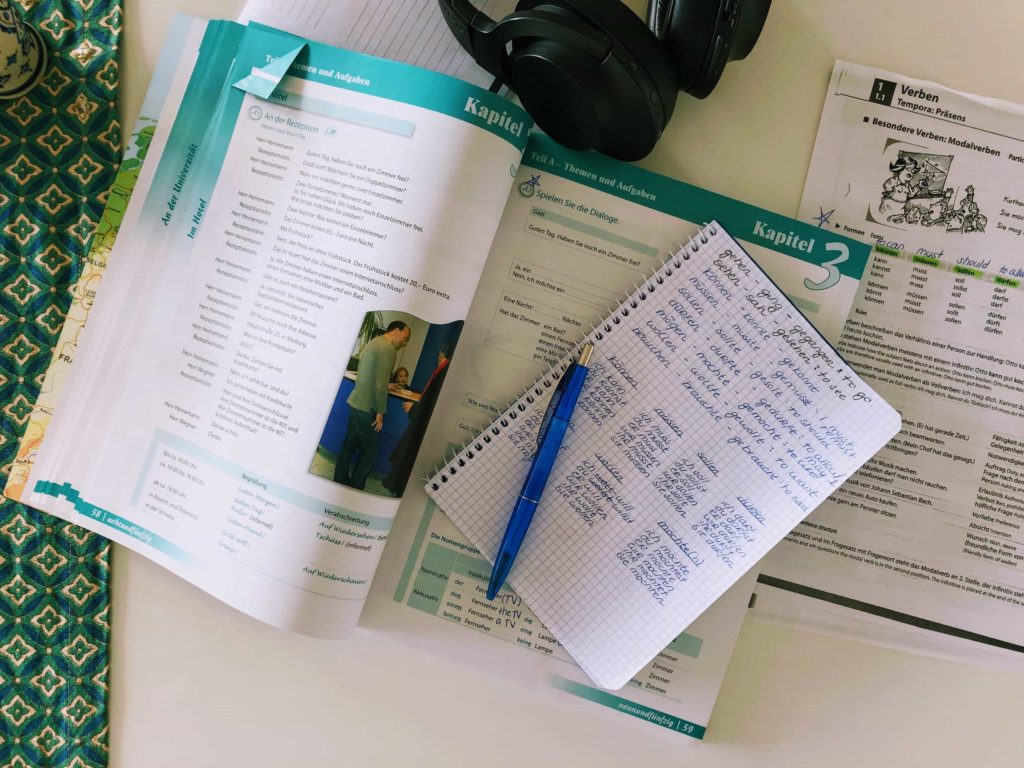
Learning a Foreign Language When Living Abroad
While on a hike a few weeks after moving to Zurich, I commented to my friend that I was proud to be developing an ear for German. “It’s so weird, though,” I said, “that the Swiss say ‘bitte’ to you as a greeting.” Bitte means please, and while I thought it odd, whenever someone said it to me I went right along with it, responding with a cheery and triumphant “Bitte!” right back.
My friend stared at me for a minute, then doubled over laughing. “Alex, they are saying “Grüezi!” to you, not “bitte.” Grüezi is the casual way to say hello to someone in German, and thus, makes a lot more sense as a greeting. It turns out I was a crazy-sounding American who was essentially shouting “Please!” at everyone on our hike…and at the store clerk, and the post office, and to the train ticket collector. Those two words sounded exactly the same to me. So much for developing that ear.
I’ve now been in Switzerland for nearly a year, and picking up German has been no easy feat. As you might have guessed, learning new languages does not come easily to me. And when it comes to languages, Switzerland has quite a few. In fact, the country has four national languages: German, French, Italian, and Romansh (spoken by less than 1% of the population).
Where you live determines what you speak. French is spoken in the west of Switzerland, while Italian is spoken in Ticino and in the south, and Romansh is only found in the Alpine canton of Graubünden. Since I live in Zurich, I am in the German-area of Switzerland and so, that is what I have been attempting to learn!

High German vs Swiss German
Now, there is a little wrinkle here. The most notable linguistic fact about German-speaking Switzerland is the use of dialects (Swiss German, Schweizerdeutsch) for spoken communication and standard German (High German, Hochdeutsch) for written communication. Swiss German has different pronunciation, grammar, and words. This makes the task of learning German difficult for foreigners – especially when your self-proclaimed “ear” for the language needs a lot of work.
Deciding whether to learn High German or Swiss German is a question that plagues most expats in Zurich. Many teachers will recommend first acquiring a strong basic foundation in High German before starting Swiss German. All written documents in Switzerland’s Germanic cantons, from the newspaper to contracts to invoices to phone apps, will be in High German. And, if you are looking to get an official language certification (sometimes necessary for visas, jobs, or school), you will be tested on your written and oral High German skills. For all these reasons, I chose to start with Hochdeutsch, but ultimately, whatever you choose will be based on your own personal language needs.
Choosing a Language Learning Method

Now, I don’t discriminate when it comes to tools to learn a language. I tried using language-apps (Duolingo and Babbel), and also signed up for a twice-weekly evening beginner class. When I started writing for the Pimsleur blog, I was offered the Pimsleur German Level 1 course to try out as well.
I figured I could certainly use all the help I could get, and so I gladly took Pimsleur up on the offer. It came at just the right time. I was traveling too often to continue the in-person night class, and the other apps simply didn’t offer enough structure to really build any foundational knowledge. In fact, the only thing I remember learning from Duolingo is how to say brot (bread) and wasser (water). Not entirely helpful!
The Pimsleur course offered both the flexibility, as I could choose when and where I did my lessons, and the necessary structure to help me master the grammar and vocabulary.
Pimsleur Review – My Three Favorite Things: Learn German with Pimsleur
One: The Focus on Correct Pronunciation
Pronouncing German words correctly is notoriously hard for a native English speaker. The way I needed to move my mouth to form the “ch” sound or the way the pronunciation of a letter changes with an umlaut (those two dots on top of a letter) was completely new. Practicing the sounds by properly forming my mouth is almost like exercising a new muscle. I was also having a hard time rewiring my brain to remember that, in German, a “w” is pronounced like “v,” that “s” is pronounced like “z” and “v” is pronounced as “f.” Even looking at the intimidatingly long words was overwhelming.
Pimsleur focuses on ensuring I know how to pronounce each word properly. The instructor spoke slowly and deliberately, breaking down new words in manageable chunks (sometimes starting from the end of the word and working forward), and offering similar sounding words in English to help my brain connect the dots. And because Pimsleur is nearly entirely audio-based, I was practicing the pronunciation without first seeing the word (and thus confusing myself). It wasn’t until after the lesson was over that I would pull up the reading lessons to learn how the word was written.
Two: The Importance of Repetition and Recall
Each lesson is less than 30 minutes long, and only a few new words or concepts are introduced with each lesson. It’s true that with Pimsleur, you won’t learn nearly as much vocabulary or grammar as you might with a normal class course. However, what you do learn will be drilled into your head (in a good way!) Each lesson gradually builds upon the previous one, with new vocabulary introduced, and then recalled, at regular intervals. I felt like I had the chance to really internalize the words and commit them to memory, instead of being overwhelmed with a long vocabulary list at the end of each segment. Sometimes, I was asked to recall a word or phrase I learned 10 lessons previously. Instead of feeling flustered, I ended up surprising myself by finding that the correct answer was right at the tip of my tongue. Turns out I was truly learning and remembering!
Three: Conversation-Based Lessons
This is perhaps my favorite aspect of learning German with Pimsleur. Every word, phrase, and concept is introduced in a conversation-based setting. This was an easy way for me to organically understand the wonky German sentence structure, which is very different from English. (I imagine that Yoda would be an excellent German speaker. “Easy to learn, then, would German for Yoda be!” ).
It also helped me develop that much-desired “ear” for German. With each lesson, I was getting accustomed to hearing the intonations, rhythms, and melody of a spoken language. Familiarizing myself with the sounds of a German conversation has helped the language feel, for lack of a better word, less foreign.
And in the Level 1 lessons, I immediately started learning phrases and conversation techniques that were useful and beneficial for a new speaker. For example, in the very first lesson, I learned how to properly say “Excuse me,” “I understand/don’t understand German,” “I speak a little,” and so on. Short, simple phrases like this are hugely helpful for a beginner.
I’ve since learned how to ask for directions, how to order a coffee or beer, and casual ways to chat with a friend. As the lessons go on, the conversations got more detailed and complex, but since I understood the basic structure, I was able to easily build upon my knowledge.
Gaining the Confidence to Speak
Learning a new language is tough. It takes perseverance and an acceptance that there will be a lot of mistakes along the way. And above all, a willingness to get out of your comfort zone. The transition between passive use (listening, reading and repeating) and speaking is always a difficult one for me. I think that speaking is the most important part of learning a language. I can conjugate verbs all day and night, but if I’m still too nervous to try and order a coffee in German, I won’t get anywhere.
After a few weeks with Pimsleur, I feel like I have taken a dramatic shortcut: I feel confident to start speaking and practicing in real-life situations. Of course, I still have a long way to go to master the German language. But at the end of the day, that is exactly what a language course should do: give you the confidence to speak.

Learn to Speak German – Don’t Just Study it
Because learning a new language is not about how many words you know, how many grammar rules you’ve learned, or how many catchphrases you’re able to memorize. It’s about understanding what you hear and responding easily and naturally.
Try the Full Pimsleur German Premium Course for 7 days Free! Only $19.95/month thereafter.
3 Comments for "Learning German with Pimsleur: An Expats Review"
Omg the Yoda learning German made me die laughing!
You are doing a wonderful job . This could be a great start for learning German language.
You did a great job ordering coffee, croissants And so much more when we were visiting😊